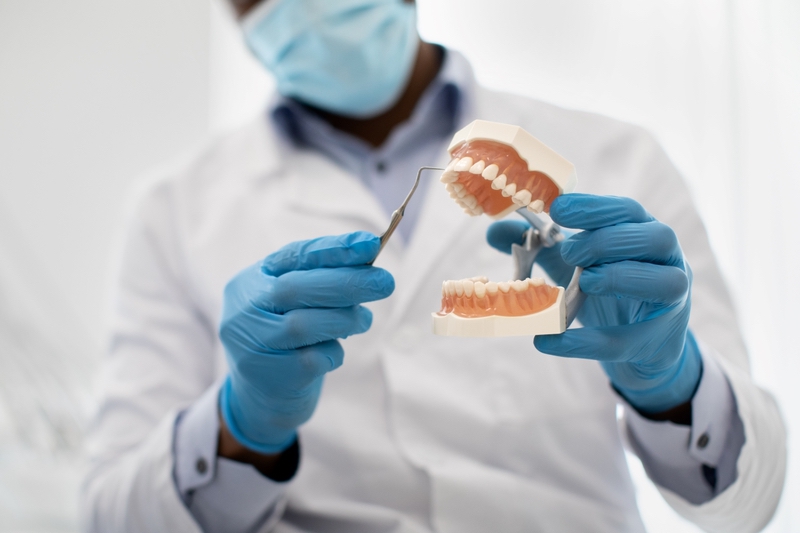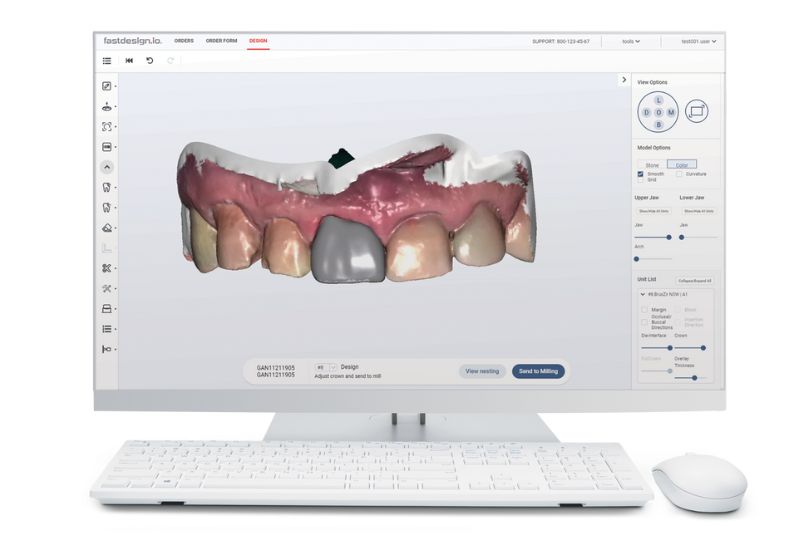The Future of Tooth Replacement in Johnstown Implant Dentistry
Implants Can Entirely Restore Your Smile
The query of whether smokers can get dental implants efficiently is one which many sufferers face. Smoking has long been related to antagonistic results on oral health, including gum disease, tooth decay, and compromised healing. Many individuals who smoke may worry about their ability to undergo dental procedures like implants, which rely closely on proper therapeutic and integration with the bone.
Dental implants are designed to exchange missing teeth, offering a sturdy foundation for artificial teeth. The procedure involves putting a titanium post into the jawbone, serving as a root for the brand new tooth. For smokers, the healing process may be prolonged due to reduced blood circulate and oxygen provide, which impacts the body’s ability to heal. Smoking additionally leads to the release of poisons that may negatively influence the surrounding tissues.
Research indicates that smokers face larger failure charges with dental implants compared to non-smokers. Several research suggest that the success rates of implants may lower by 10% to 20% in smokers. This is basically as a result of impaired healing, increasing the chance of infections and problems. The nicotine in cigarettes narrows blood vessels, decreasing oxygen transport and nutrient delivery, each important for therapeutic.
Advanced Dental Implant Replacement Options
In addition to healing issues, smoking also can result in bone loss within the jaw. A healthy jawbone is important for the profitable placement of dental implants. The impression of smoking can result in the degradation of jawbone density over time. For people contemplating implants, sustaining bone health is essential, and smokers may have additional treatments to boost bone density before they can receive implants.
Before proceeding with implants, a dentist may consider a smoker’s general oral health. This evaluation includes checking for gum disease, tooth decay, and the condition of the bone. If vital issues are found, the dentist may suggest that the affected person stop smoking for a chosen period before and after the surgery to enhance the chance of success. In some cases, specific dental procedures could be necessary to enhance the conditions of the oral cavity.
Smoking not solely impacts the instant healing process but can even affect how long the implants final. Several studies recommend that long-term smokers might face points such as peri-implantitis, an inflammatory condition affecting the tissues around the implant. This condition can lead to bone loss, which could finally result in implant failure. The cyclical nature of smoking-related issues raises severe questions about long-term outcomes for smokers in search of implants.
Advanced Dental Implants for a Lifetime of Smiles
However, quitting smoking can lead to important improvements in oral health. Even a brief cessation period prior to surgery can enhance blood circulate and the body's ability to heal. Dental professionals often encourage patients to suppose about quitting as part of the preparation for any dental procedures, together with implants. Some research have documented cases the place short-term abstinence from smoking positively influenced the success of dental implants.
The assist of healthcare providers, including dentists and common practitioners, could make a substantial difference on this course of. Programs designed to assist people quit smoking are readily available and can include counseling, drugs, and neighborhood assist. Patients who efficiently stop smoking usually expertise not solely higher dental outcomes but also total health advantages, bettering their quality of life.
Patients additionally must be informed in regards to the risks associated with smoking before and after the placement of dental implants. Post-surgical care is crucial for making certain that the body integrates the implant without complications. Smokers are often cautioned in regards to the significance of maintaining good oral hygiene during the therapeutic process. Regular follow-ups with the dentist can help in monitoring the healing and permit for early intervention if problems arise.
It is essential to know that whereas the success rates for smokers may be lower, they do not appear to be totally precluded from receiving dental implants. Each case should be carefully evaluated by a dental skilled who can present personalized recommendations. Factors such as the extent of smoking, duration, and general health status will help determine the most appropriate course of action for each patient.
Best Dental Implant Treatments in Johnstown for Missing Teeth
Emphasizing preventative care, both pre- and post-surgery, holds important significance for smokers considering dental implants. Routine dental check-ups, effective periodontal therapy, and strict adherence to oral hygiene may help mitigate some of the Look At This risks related to smoking. It’s also helpful for smokers to debate their habits candidly with their dental care team to develop a tailored technique that addresses individual challenges.

Dental implants can offer a restorative solution for missing teeth, enhancing each appearance and functionality. For smokers, nonetheless, continuing with warning is important. Engaging in open dialogue with healthcare providers about smoking status and potential cessation can lead to better oral health outcomes. The willingness to make lifestyle modifications can significantly enhance the likelihood of profitable dental implant placement.
As a last observe, smokers should remain proactive relating to their oral health. Making knowledgeable choices and prioritizing dental care might pave the way for successful dental implant remedy. While smoking does introduce challenges, the potential for reaching a good end result exists with the right assist and dedication to healthier habits.
With dental implants, restore functionality and aesthetics.
Implementing strategies for quitting smoking not only benefits the probabilities of dental implant success but additionally improves general health, ultimately resulting in a greater quality of life (For Trusted Tooth Replacement, Johnstown's Leading Implant Dentistry offers).
- Smoking can considerably hinder the healing process after dental implant surgery because of reduced blood move and oxygen levels within the gums.
- Smokers have a higher risk of implant failure, with research indicating a noticeable disparity in success rates in comparability with non-smokers.
- The presence of nicotine and other dangerous chemical substances in tobacco merchandise can result in issues corresponding to infections and delayed recovery.
- A thorough session with a dental professional is essential to evaluate individual risks earlier than continuing with dental implants for smokers.
- Smoking cessation before and after the implant procedure can considerably enhance the chances of success and overall oral health.
- Dental professionals may advocate additional therapies or procedures, similar to bone grafting, to enhance the viability of implants in smokers.
- Smokers might require more frequent check-ups and maintenance appointments to observe the condition of their implants over time.
- Many dental clinics supply tailor-made applications to support smokers in quitting, which can be useful for these contemplating implants.
- Adequate oral hygiene practices, mixed with smoking cessation, play a important function in minimizing issues after receiving implants.
- Evaluating way of life modifications, together with dietary modifications, can contribute positively to the long-term success of dental implants for smokers.undefinedCan smokers get dental implants successfully?
With Comprehensive Dental Implants, Upgrade Your Oral Health.
What impact does smoking have on dental implants?
Smoking can significantly hinder the success of dental implants. It restricts blood flow, delays healing, and will increase the chance of infection, resulting in a better probability of implant click this site failure - Best Dental Implants in Johnstown for Restoring Your Smile Completely.
How long should one quit smoking earlier than getting dental implants?
Dental Implants that last a lifetime and provide smiles
Ideally, it is recommended to quit smoking no less than 2-4 weeks prior to the procedure. This promotes better therapeutic and will increase the probabilities of profitable integration of the implant.
Are there specific risks for smokers undergoing dental implant surgery?
Yes, smokers face elevated risks such as delayed healing, infection, and potential implant failure. These elements make the process more complex, and careful consideration is needed.
With Professional Dental Implants, Create a Lovely Smile.
Can dental implants be successful for infrequent smokers?
While occasional smokers might have a lower risk in comparability with heavy smokers, they're nonetheless at an elevated risk for problems. Consulting with check these guys out a dental professional for personalized recommendation is crucial.

What are ideas for smokers to improve dental implant success rates?
Advanced medical implants for the restoration of a perfect smile
Smokers can improve their possibilities by quitting smoking nicely upfront of the surgery, maintaining good oral hygiene, and following post-surgical care directions offered by their dentist.
Is there a distinction in recovery for smokers versus non-smokers?
Yes, smokers usually experience longer recovery occasions and higher complication charges compared to non-smokers as a outcome of impaired blood circulation and oxygen delivery to therapeutic tissues.
What ought to a smoker talk about with their dentist earlier than getting implants?
- Advanced Dental Implant Replacement Options
Comprehensive Dental Implant Services in Johnstown

Smokers ought to focus on their smoking habits, any historical past of problems with earlier dental work, and methods for quitting or reducing smoking earlier than the procedure.
How does smoking have an effect on long-term implant maintenance?
With Permanent Dental Implants in Johnstown, Restore Your Smile
Smoking can complicate long-term maintenance of dental implants. Smokers may be more vulnerable to gum disease, which might jeopardize the steadiness of implants over time.
Can nicotine patches or other aids help smokers in the course of the dental implant process?
Yes, nicotine replacement therapies similar to patches may help people scale back cravings and quit smoking earlier than surgery. It's advisable to debate this with a healthcare skilled to find out the most effective method.